Another great writer makes her exit:
Ursula K. Le Guin has passed.
But with her death, I do not want to mourn her…
I want to celebrate her. Her work. And what she did for the world of writing (and reading).
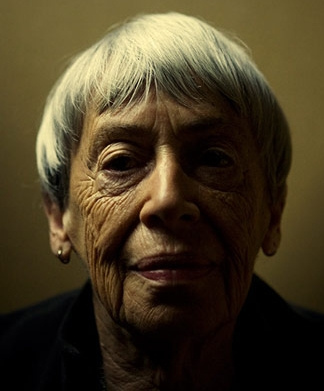
Ursula K. Le Guin: An Early Champion of Speculative Fiction
Ursula K. Le Guin was brave.
She cracked into the masculine shell of Fantasy and Science Fiction, where few others had dared to try. What’s more – she transformed it.
She discovered ways to uproot the creative perspectives and techniques previously found only in “literary fiction” – and implanted those techniques into Speculative Fiction.
Where most Speculative Fiction made us wonder… she made us think.
Early Science Fiction was Plagued by “What ifs” and “Conqueror Fantasies”
Le Guin was one of the first writers who went beyond.
As the evolution of science and technology began to escalate, most science fiction authors were asking:
“What are we going to do next?”
…but she wanted to know…
“What are we becoming now?”
Instead of using Science Fiction and Fantasy as device for expand and conquer fantasies, she used it to explore humanity in ways that were not possible outside of Speculative Fiction.
Look at her her characters…
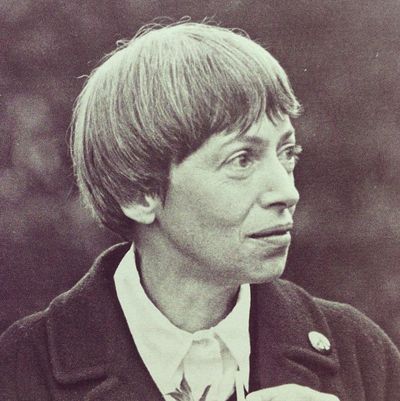
Le Guin Cut Heroes from a Different Cloth
Imagine you lived in the 1950s. Science Fiction was on the rise, mirroring the optimistic ascent of science.
Fantasy literature was already packed with masculine heroes, bulging muscles, and monsters that needed slaying.
Some people called it the Golden Age of Science Fiction:
“…the phrase Golden Age valorises a particular sort of writing: ‘Hard SF‘, linear narratives, heroes solving problems or countering threats in a space-opera or technological-adventure idiom.”
For decades, you’ve been reading about the same Masculine Heroes:
- Bulging muscles
- Ferociously virile
- Proficient at slaying monsters
The closest thing you could get to an introspective hero… was something like Lovecraft. And even then, the options were lacking.
Essentially, if you wanted to read Speculative Fiction, you had to read about characters who could either:
- Do no wrong
- Were inherently evil
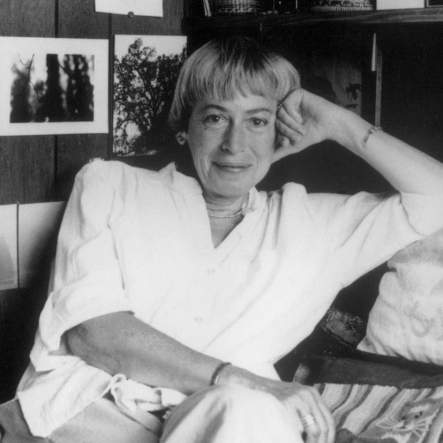
Protagonists Who Could Think
I’m not going to say Le Guin was the first to do this…
But she was part of the change.
Instead of writing “Action Jack” Heroes, she used protagonists who were deeply, deeply flawed. Either through their beliefs and philosophies, or through their ego.
Le Guin forced Speculative Fiction to mature. Her work helped to unlock the genre, and lend it an aggressive thoughtfulness that, I think, no other genre can touch.
Ursula K. Le Guin’s Best Stories and Other Works
For an author published across 40+ years, Le Guin has a surprisingly small body of work. But she did cover a broad spectrum:
- Novels and short stories
- Essays and criticisms
- Children’s books, YA Fiction, and more
Here, I want to talk about some of her best works that every writer should read:
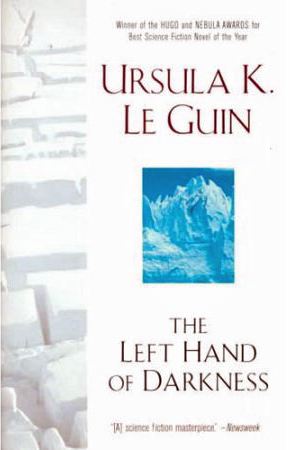
5. Left Hand of Darkness
What if there were no Genders?
Or… what if you were the only person in the world who understood Gender?
The Left Hand of Darkness is a fish-out-of-water science fiction story. A single envoy is sent to encourage an entire planet to join the Ekumen (space-faring empire).
When he arrives, he is immediately plunged into a world without the concept of Gender. This affects everything about his mission:
- His understanding of society and it’s rules
- His interactions with the locals (both friendly and hostile)
- And his perceptions of self
There is a reason people still call this book “groundbreaking.”
If you want science fiction, Le Guin’s The Left Hand of Darkness is a rich read.
Why Should Writers Read This?
Two reasons:
Culture and connection.
Darkness is about taking something “normal” and submerging it into a fundamentally alien culture.
Essentially, it becomes a theme park of Worldbuilding, splaying out cultural differences and dissecting the difference between “them” and “us.”
Beyond that, it explores the nature of human connection – without gender. If you’ve ever wanted to write someone of the opposite sex, this is a fantastic middle ground.
As Le Guin said: ““I eliminated gender to find out what was left.”
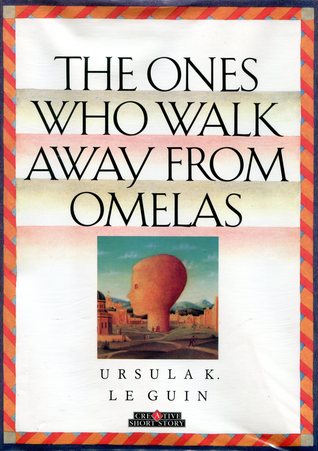
4. The Ones Who Walk Away from Omelas
Short, sweet and… aimless?
Beautiful, tight prose – visual prose – will transport you immediately to the city of Omelas.
I don’t want to say too much about it, because it’s only 4 pages long.
And 100% worth the read.
Why Should Writers Read This?
I’m not even sure if this counts as a short story. It has the length, but lacks something I can solidly define as a plot.
It also toes the line between necessary and purple prose (prose that is too elaborate or ornate). Though, in my opinion, the elaborate set up yields a satisfyingly dreadful reward.
But it is the play of morality, the balance of good and evil – and the choice that makes this short fiction worth reading.
3. Steering the Craft
The aim of every writing guide is to improve your writing.
Or, at least, it should be.
My relationships with writing books: mostly miss.
There are a few gold-leafed writing bibles out there.
Stephen King’s On Writing ranks high among them.
I have it on good authority: this is another one of them.
Why Should Writers Read This?
Most writing books out there overpromise, and underdeliver.
Le Guin doesn’t.
You will gain a stronger understanding of the techniques of writing:
- Nuts and bolts
- Style and language
- Less about plot and characters, more about the act of writing interesting prose.
If you want to improve your mastery over language, this is a great book to read this year.
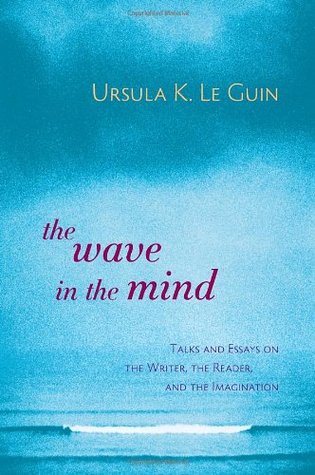
2. The Wave in the Mind
“I am a man.”
That’s the opening line of this Le Guin collection. And then she goes on to logically explain her statement until you agree with her.
These essays, critiques, and reflections are critical to understanding the mind of Ursula K. Le Guin.
Why Should Writers Read This?
How does a professional, acclaimed writer view other professional, acclaimed writers?
What does she think about their works?
What does she think about the craft of writing, in general?
All of these questions, and more, are answered in this collection. This is a collection that will teach you about writing… without trying to teach you about writing.
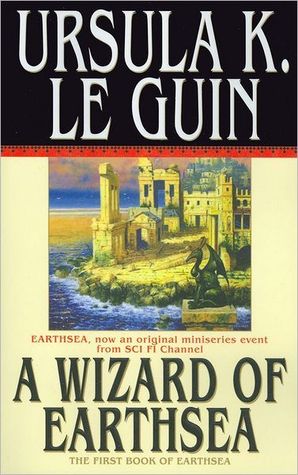
1. A Wizard of Earthsea
One of the first “Wizard coming of age” stories.
The Wizard of Earthsea paved the road for so many modern classics. Namely, Harry Potter.
What makes Earthsea so special?
It’s more than a fantasy romp in a magical world. It’s a book thick with lessons and learning, for both the protagonist and the reader.
Why Should Writers Read This?
The perfect balance between story and parable.
A Wizard of Earthsea highlights the power of teaching through storytelling.
If you’ve ever wanted to leave your writers with a profoundly changed world-view – you should read this book.
On top of that, Earthsea has one of my favorite magic systems in all fantasy: Naming Magic.
I won’t spoil how it works here, as that’s part of the journey.
A Force for Change in Speculative Fiction
Ursula K. Le Guin was at her best when she was exploring.
Criticisms of her later works include that she was trying to imbue her ideals on the world too forcefully. “Too didactic.”
But this was her strength, in the early days.
This was how she forced change into a genre that was otherwise drowning in one-dimensional fantasies. Stagnating, even.
And that is why she’s still worth reading.
Have you read any of Le Guin’s work? What did you think?
Give me your thoughts in the comments below.
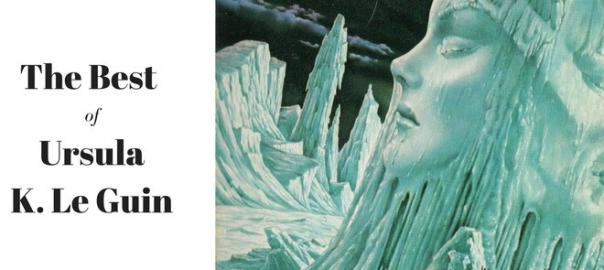
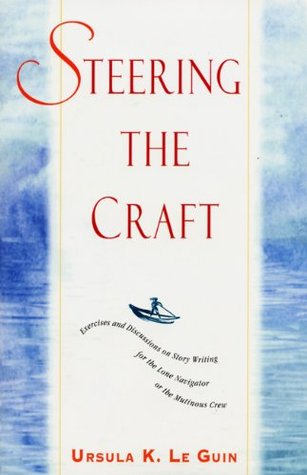
She rules!
LikeLiked by 1 person
I love when I come across new writers. I had never heard of her, and will definitely look into these. The character you refer to is actually called the Byronic Hero. Yeah, that Byron.
LikeLiked by 1 person
The protagonist of Wizard of Earthsea is much closer to Byron. Left Hand of Darkness’s protag is much quieter, more of an observer – a fish out of water, who’s trying to learn how to breathe air.
LikeLike
Also, I’m still surprised anyone hasn’t heard of Ursula Le Guin! Better late than never… Happy reading =)
LikeLike
Thanks for giving me a place to start with Le Guin’s work… I’ve never read any of it, so I definitely needed a primer!
LikeLiked by 1 person
Absolutely. I hope you enjoy her work, and that it helps bring a better understanding of humanity to your world.
LikeLike
Thanks for this, I heard she had passed and realized I have never read any of her work. Now i know where to start.
LikeLiked by 1 person
I haven’t read any of her books as I am really not into Sci-Fi but will definitely check out “The Left Hand of Darkness” now. Thanks!
LikeLiked by 1 person
Left Hand of Darkness is way different than most Sci Fi. Not really focused on spaceships and laser duels. It’s definitely worth it for anyone interested in the differences between genders.
LikeLike
Earthsea trilogy was a big part of my youth. I still have the three pbs. This is a great post. Thanks.
LikeLiked by 1 person
She deserves her recognition and more for that series alone.
Thanks for the kind words =)
LikeLike
Reblogged this on The Starving Writers' Club.
LikeLiked by 1 person
Hey, thanks for sharing this!
LikeLike
A good list, and some interesting points. Steering the craft is, I think, a really useful book. It deals with several angles that few other books on creative writing deal with.
LikeLiked by 1 person
Thank you for the kind words. As for Steering the craft, here’s how it was pitched to me: Everything King (On Writing) and Strunk & White don’t talk about, Le Guin does.
LikeLiked by 1 person
Changing Planes is another good one; an anthology of fictional cultures and world’s that really explore otherness and shared irrationality in interesting ways.
LikeLiked by 1 person
I haven’t read much of her later work, so I’ll add this to my list. Thanks for the recommendation.
LikeLiked by 2 people